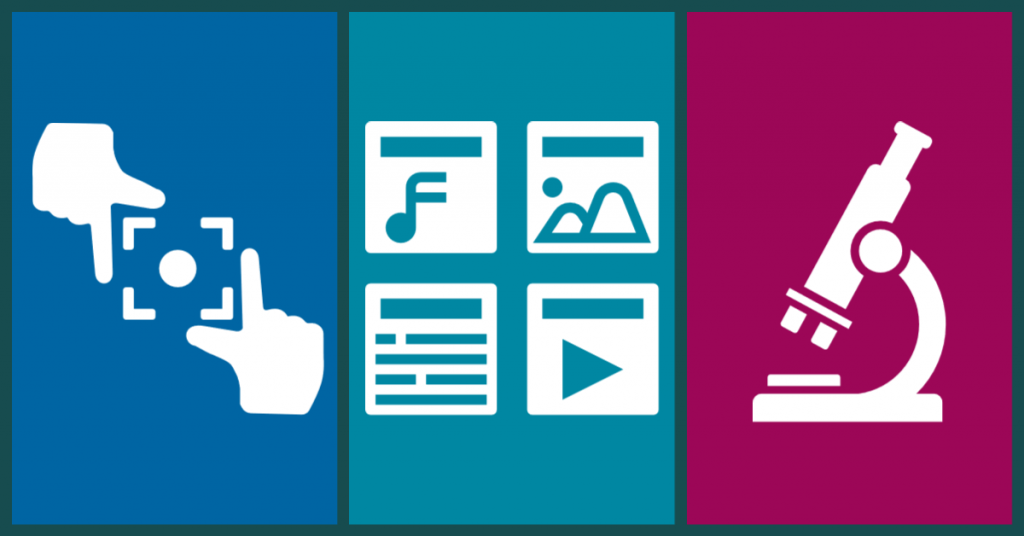
Assessing Your Project
In this month’s feature we explore how to understand your final project through its:
- Scope
- Format
- Methodology
- Research Methods
- Referencing Style
Scope

Starting a dissertation, thesis, or other large academic project for the first time can be daunting. There are so many aspects to explore. You should also consider the time management and writing skills that you will need to develop for this project.
Here are some questions which may help you to define what your project is, and where you might focus your energy:
- What kind of format does it need to be presented in?
- What kind of research do you need to engage in?
- What kind of methodology do you need to employ?
- What referencing style do you need to use?
Format

The format of your project includes aspects such as the required overall word-count and the visual design of the project, as well as the file type.
Knowing the word-count of the project will allow you to plan out the different sections that compose it. Knowing that it needs to be presented as a specific digital file or in a particular physical aspect will also influence your time management.
You may need to plan time for printing and binding your final project, or for creating and providing additional supplementary materials that go with it.
Research Methodology

A research methodology refers to the overall strategy and rationale behind your research project. Different research methodologies are commonly used in different fields of research.
The most common methodologies fall under one of these 3 broad headings:
- Quantitative
- Qualitative
- Mixed
Quantitative
This methodology focuses on objective measurements. It is a means of collecting and analysing statistical, mathematical, and numerical data to describe characteristics, find correlations and test hypotheses. Polls, questionnaires, and surveys are common data collection techniques.
Qualitative
This methodology focuses on collecting non-numerical data to explain the nature of the phenomenon and the underlying causes (the why). It is a means of collecting and analysing people’s beliefs, experiences, behaviour, and interactions. In-depth interviews, focus groups and observing people’s behaviour are common data collection techniques.
Mixed
This methodology focuses on selecting the most appropriate techniques of data collection for a study. It uses a mixture of quantitative and qualitative techniques to acquire and interpret the data. There are four ways to organise this data collection:
- Convergent parallel (both types of data are collected and analysed separately and then compared)
- Embedded (both types of data are collected at the same time, but one is secondary to the other. This order reflects the overall focus of the research design.)
- Explanatory sequential (quantitative data is collected and analysed first, then the qualitative data. This is when you think your qualitative data will explain your quantitative findings.)
- Exploratory sequential: (qualitative data is collected and analysed first. This is done when you think your quantitative data will confirm or validate your qualitative findings.)
Research Methods

An academic project will need to be researched. This means that you will be creating and conducting an independent investigation into a topic which you have identified.
You will do this by identifying which research methods are common in your field of study and selecting which ones would be most appropriate for you to use. If you are in doubt, contact your supervisor or the Academic Writing Centre for support.
Popular research methods include:
- Case studies
- Focus groups.
- Interviews
- Secondary research
- Surveys
Referencing Style

There are many different types of academic referencing styles. At its core, a referencing style is a way of
- tracking the resources which you consulted during your research.
- directly acknowledging who’s work you’ve used.
- presenting your examiner and other readers with links to these resources.
In ATU Sligo, Harvard Style is the common referencing style in use. However, your supervisor may require you to use a different style, depending on the field in which you are conducting research.
Each referencing style will require that you organise the metadata about a resource in a particular way. This will differ between in-line citations, quotations and the bibliography or reading list.
Next Steps

For more information on other aspects of your final project please check out these resources:
- How to write your research question
- How to find resources for your project
- How to identify components for your project
- Referencing styles with Cite Them Right and EndNote
Talk to us on LibChat (Monday -Friday: 10.00 – 12.00 and 14.00 – 16.00) or request a meeting with a librarian to discuss your project.
